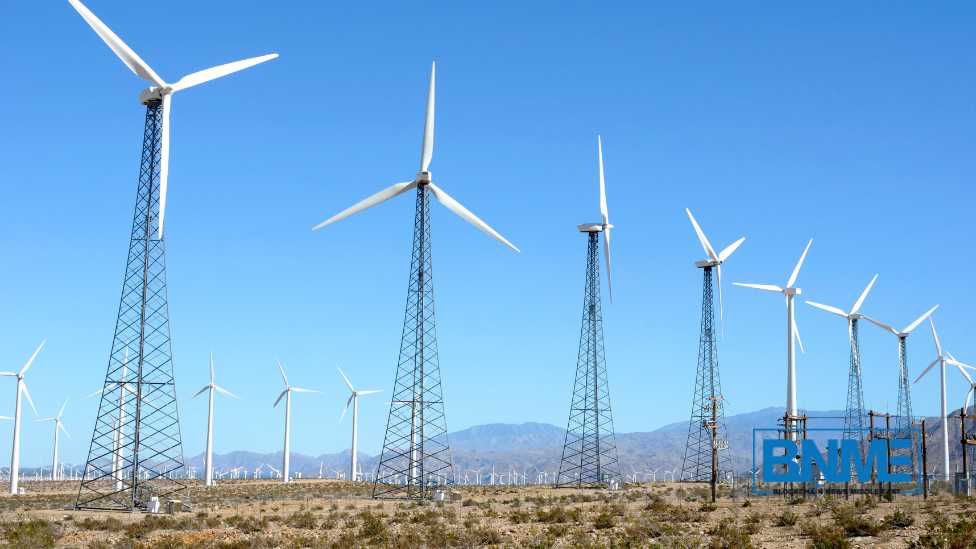Saudi Arabia is home to different ecosystems, including coastal mangroves, coral reefs, high-altitude forests, and lush oases. Simultaneously, it is popular for its deserts. Thus, desert conservation is an important concept in places like Saudi Arabia. In the article, we will look at what blockchain technology can bring to desert conservation in Saudi Arabia.
Desert Conservation in Saudi Arabia
Over the years, Saudi Arabia has implemented different changes as part of the Saudi Green Initiative. The Saudi Green Initiative aims to expand the area of protected land in the country to about 249,000 square miles. Additionally, the Kingdom launched a massive conservation effort to rewild its deserts, protect endangered species, and restore native biodiversity. The plan includes nominating natural sites to UNESCO’s World Heritage List, developing nature-based tourism, and planting 10 billion trees. Even with all the changes, desert conservation in Saudi Arabia still has a long way to go with blockchain technology.
Role of Blockchain-Powered Desert Conservation in Saudi Arabia
The desert conservation efforts taken by Saudi Arabia can benefit from blockchain technology. We will look at some of the potentials blockchain brings.
Transparency
Blockchain provides a transparent ledger for tracking conservation activities. With the technology every action and transaction gets recorded and cannot be altered. This helps maintain accountability among all stakeholders involved in conservation projects.
Efficient Resource Management
Blockchain can streamline the management and distribution of resources by automating processes through smart contracts. This ensures that resources such as funding, equipment, and manpower are allocated efficiently and according to plan, minimizing waste and corruption.
Data Collection and Monitoring
Using blockchain with IoT devices to collect real-time data on various environmental parameters such as soil quality, water levels, and wildlife activity. Blockchain stores this data. Moreover, it provides a reliable and tamper-proof record that stakeholders can use for making informed decisions.
Funding and Investment
Blockchain can oversee crowdfunding and investment in conservation projects by providing a transparent platform for raising funds. Donors and investors can track how their contributions are being used, which builds trust and encourages more people to support conservation initiatives.
Community Engagement and Incentives
Blockchain can be used to create incentive programs for local communities and volunteers involved in conservation efforts. For example, participants can earn tokens or rewards for activities such as planting trees, monitoring wildlife, or reporting environmental violations. One can exchange these tokens for goods, services, or support for their communities.
Supply Chain Traceability
Blockchain can enhance the traceability of resources and materials used in conservation projects, ensuring they are sourced sustainably and ethically. This is particularly important for projects involving reforestation, where the origin of seeds and plants needs to be verified to prevent the introduction of non-native species.
Final Words
Blockchain can take Saudi Arabia’s desert conservation efforts to the next level. Overall, the technology can promote the efficiency and effectiveness of the country’s desert conservation efforts.
Frequently Asked Questions
How does Blockchain apply to Desert Conservation in Saudi Arabia?
In desert conservation, blockchain can provide transparent, immutable records, resource management, funding allocations, etc.
How does Blockchain Technology enhance transparency in Conservation Efforts?
Blockchain records all transactions and activities in a transparent and tamper-proof manner. This gives important stakeholders the ability to track conservation efforts, resource allocation, etc.
What are the Benefits of Using Blockchain for Resource Management in Desert Conservation?
Blockchain can automate resource management, optimize the distribution and use of resources like water, seeds, and equipment, reduce waste, etc.
How can Blockchain Technology help in Fundraising for Desert Conservation Projects?
Blockchain-based platforms can facilitate crowdfunding and investment by providing transparent and traceable records of donations and expenditures.
How does Blockchain support Data Collection and Monitoring in Desert Conservation?
Blockchain can integrate with IoT devices to collect real-time environmental data, such as soil moisture, temperature, and wildlife activity. This data stored on the blockchain provides a reliable record that can be used for analysis and decision-making.
Can Blockchain help in verifying Sustainable Practices in Desert Agriculture?
Yes, blockchain can record and verify sustainable farming practices.
How does Blockchain Technology Help Collaboration among Desert Conservation Stakeholders?
Blockchain provides a safe platform for sharing data and coordinating activities among various stakeholders, including government agencies, NGOs, researchers, and local communities. This fosters collaboration.




























